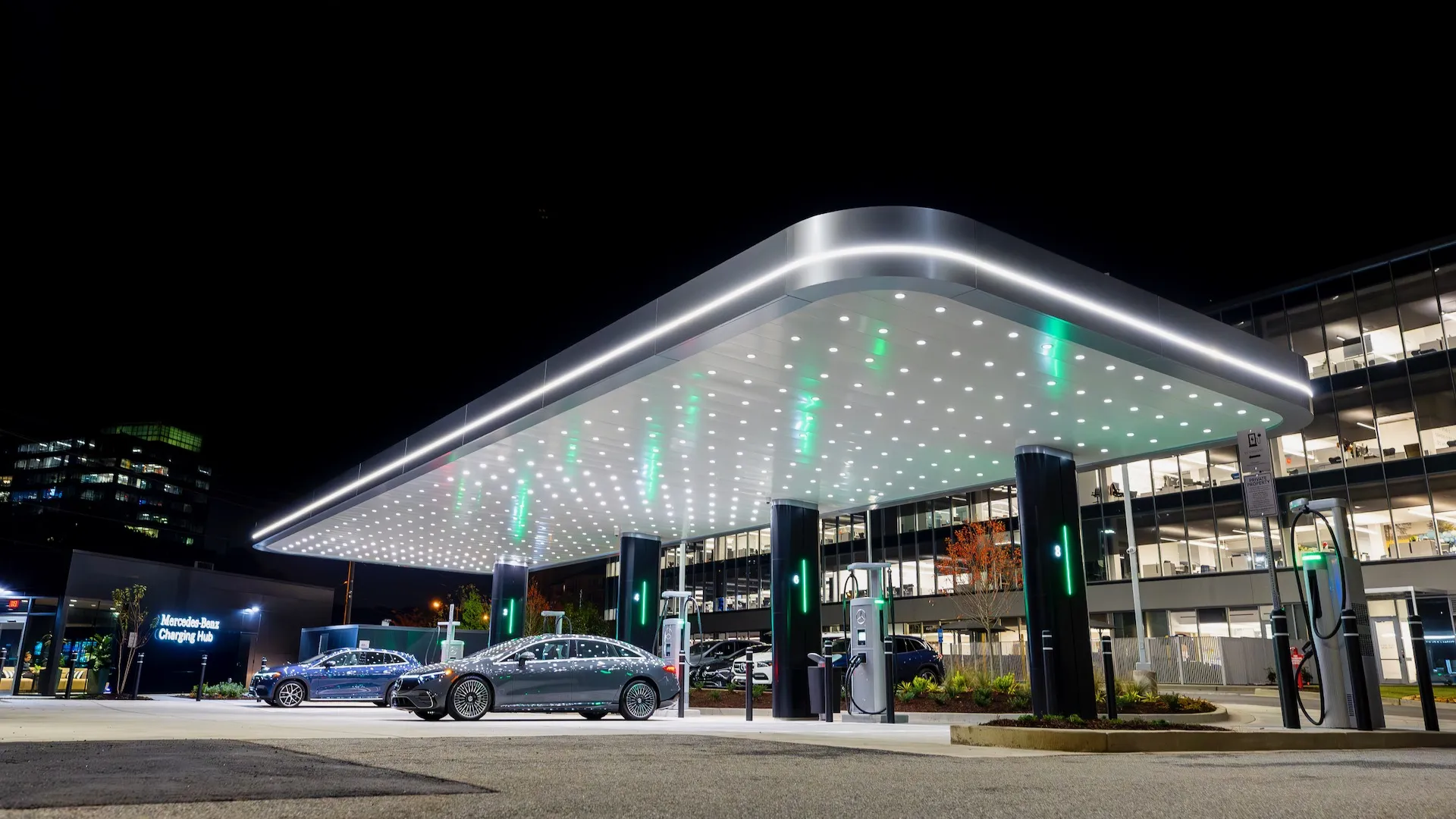Hyundai Motor Group (Hyundai, Kia, and Genesis) takes DC fast charger production in-house, instead of relying solely on external suppliers.
According to KED Global, the group’s subsidiary Hyundai Kefico Corp., engaged mainly in engine and transmission parts-making, is close to launching its own ultra-fast chargers, with a power output of up to 350 kilowatts.
The company announced EV charger development in October 2022, under the Blue Plug name, and is expected to launch the first product in South Korea later this year, once it gets the necessary certification.
The main idea behind in-house chargers is to supply them for the Hyundai Motor Group’s E-pit ultra-fast charging network in South Korea.
The E-pit network was launched in April 2021, starting with 12 stations and 72 chargers (high-power, 800 V). The article says that since then, the number of stations increased to 36, which is considered insufficient to catch up with Tesla. The Tesla Supercharging network in the country expanded from 33 to 106 sites, within the same period.
KED Global explains that Hyundai has decided to develop its own chargers, because of the relatively slow rollout of the E-pit infrastructure. The reason why the rollout was slow, apparently, is the cost of chargers/stations from external suppliers.
The E-pit network is a premium one, with four to six 350-kilowatt chargers, and a pretty fancy canopy. According to the article, expensive materials and a higher standard required by the group increased the cost of individual chargers beyond the industry average, estimated at $113,000 (150 million won).

E-pit fast charging station in South Korea
In other words, Hyundai Motor Group is taking DC fast chargers in-house probably to cut costs and increase scale. The question is whether the new business branch will be limited to South Korea or if chargers will also be exported to other countries.
Tesla has been successfully producing its own charging equipment since the beginning, so the strategy might pay off in the long term, especially since Hyundai Motor Group has all of the necessary power electronics know-how.
The news is probably not good for the current E-pit suppliers, like SK Signet (part of the wider SK Group) and EVSIS Co. (Lotte Group). Interestingly, the article says that Daeyoung Chaevi, which operated E-pit systems and chargers, has recently ended its one-year partnership with Hyundai Motor. If true, it suggests that some bigger reshuffling is happening behind the scenes as electrification progresses.










